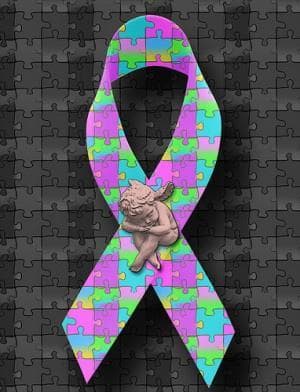Advertisement
Research: Rare Genetic Mutations And Father's Age Linked To Autism

The New York Times reports:
The gene mutations are extremely rare and together account for a tiny fraction of autism cases, suggesting that the search for therapies will be a long one, and that what is loosely known as autism may represent a broad category of related but biologically distinct conditions. There are likely hundreds, perhaps thousands, of rare mutations that could disrupt brain development enough to result in social and developmental delays.
But experts said that the overlapping results — reported in three papers posted online Wednesday in the journal Nature — give scientists working on the genetics of autism something they have not had: a clear strategy for building a real understanding of the disease’s biological basis. Researchers hope to find more similar, rare mutations in the next year or so that they estimate could account for 10 percent to 20 percent of all cases...
In the third study, Dr. Evan E. Eichler, a professor of genome sciences at the University of Washington in Seattle, led a team that investigated de novo mutations in 209 families, each with one child who had received an autism diagnosis. It found that such glitches were four times more likely to originate in the male DNA than in the female, and more likely to occur in children of middle-age fathers than in those of young fathers;
the risk began to increase for fathers at about age 35.
Last week, the CDC reported that autism spectrum disorder diagnoses appear to be on the rise, with 1 in 88 children in the U.S. diagnosed. That’s a 23 percent increase from the previous 1 in 110 rate reported three years ago by the CDC.
This program aired on April 4, 2012. The audio for this program is not available.
